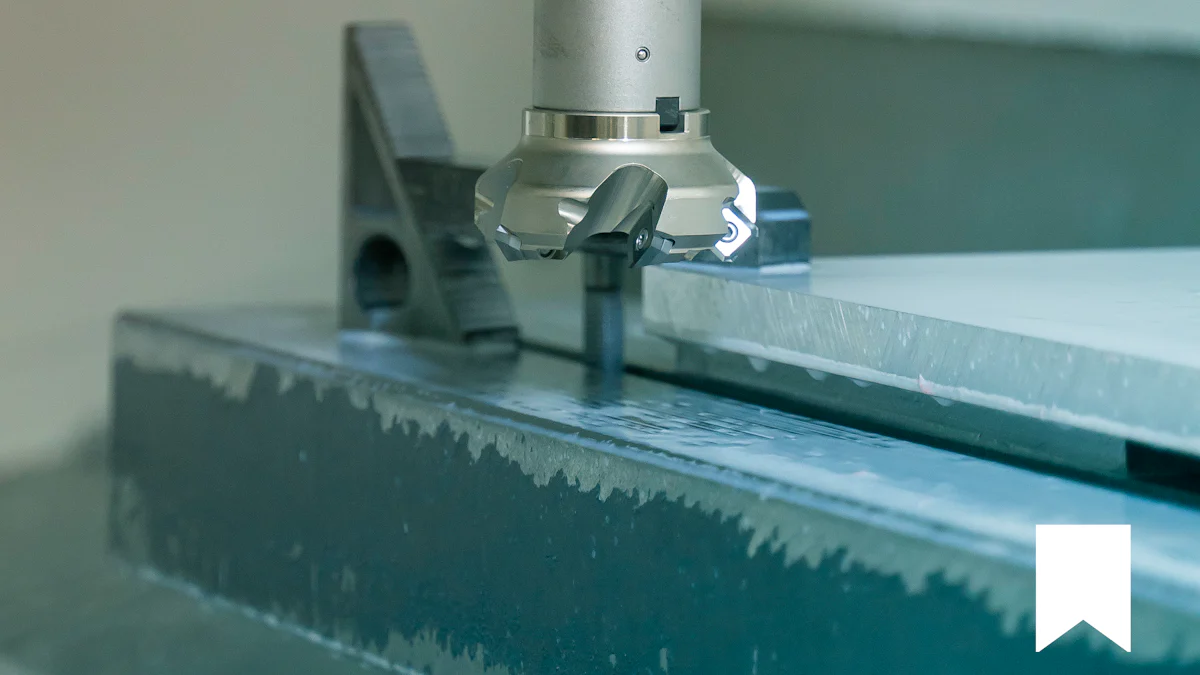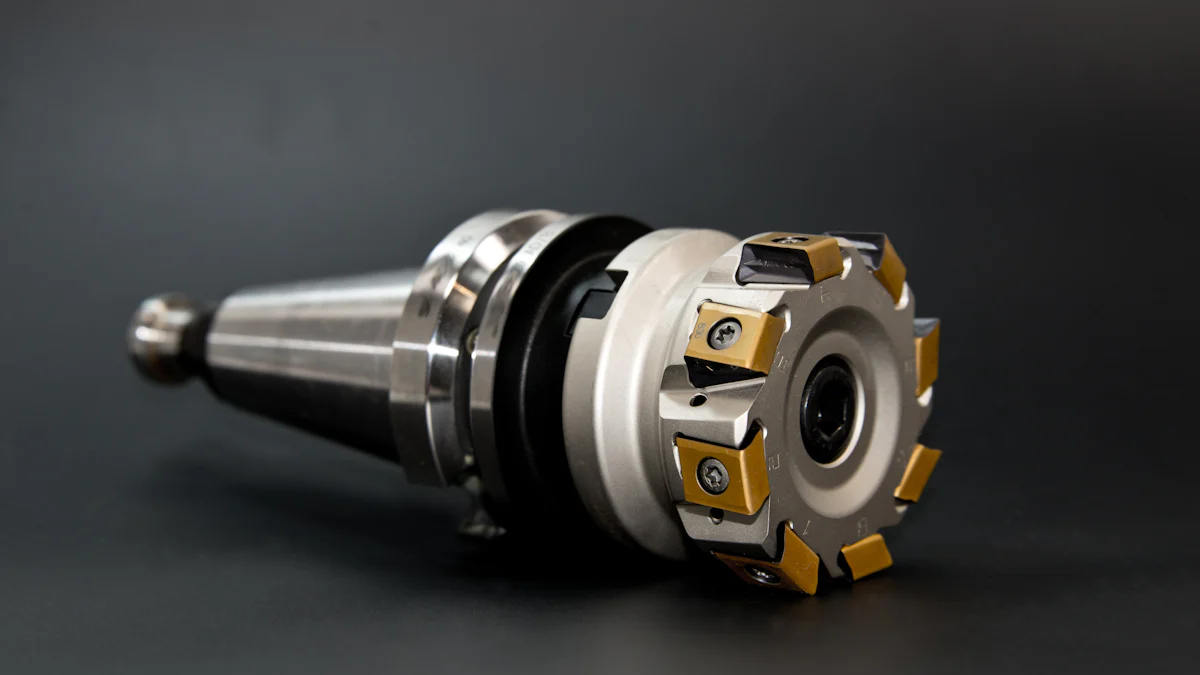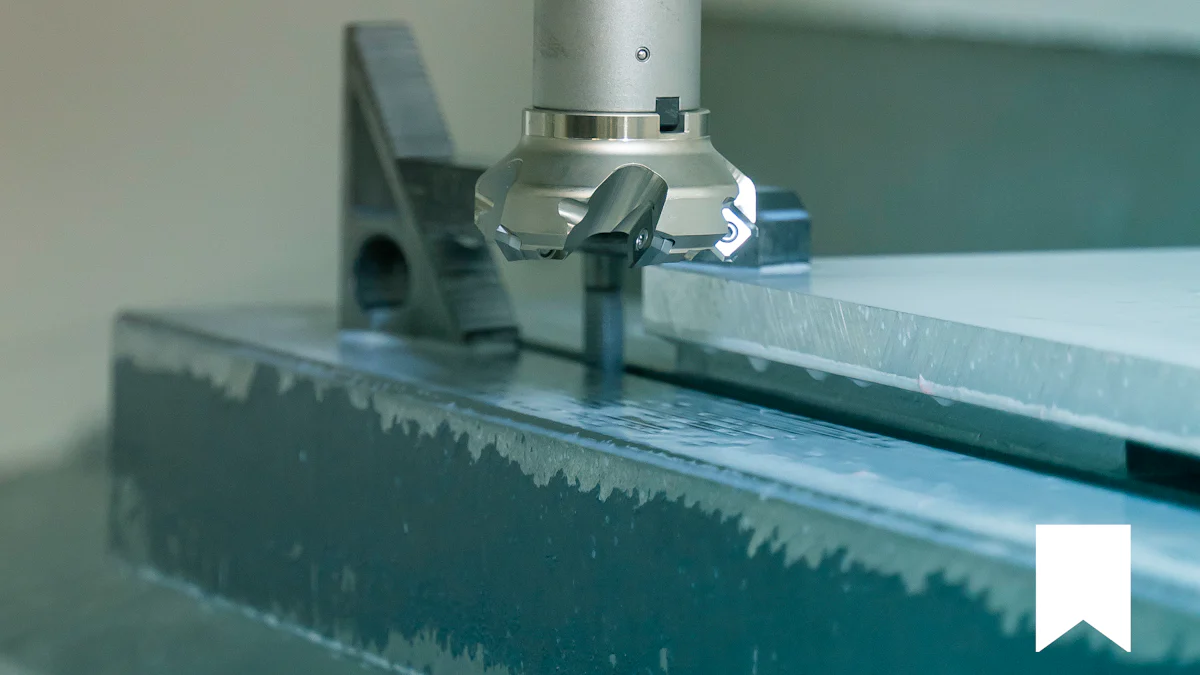Why the Spindle is a Critical Component in CNC Machining

In the realm of CNC machining, where precision and efficiency reign supreme, the spindle, a critical component, emerges as a pivotal player in the orchestration of intricate operations. The spindle, a critical component, serves as the powerhouse that grips and propels cutting tools with unparalleled finesse. The symphony of hardware components—pocket milling, laser cutters, drilling, end milling—finds harmony in the spindle's robust performance. As industries embrace advanced technologies like IoT and predictive analytics for enhanced productivity, the significance of maintaining spindle health becomes paramount for seamless operations.
Understanding the Spindle

Definition and Function
Spindles, the powerhouse of CNC machining, propel cutting tools with finesse. Belt-driven spindles offer cost-effective solutions for light to medium-duty tasks, achieving good speeds while balancing affordability with functionality. On the other hand, direct-drive spindles excel in heavy-duty applications, providing superior torque and precision. Their rigid design minimizes vibrations, ensuring high-quality finishes on tough materials. Motorized spindles bring versatility to high-speed and high-precision tasks.
Types of Spindles
In the realm of CNC machining, the spindle plays a pivotal role in driving efficiency and precision. The variety of spindles available cater to different needs:
Belt-driven spindles: Ideal for light to medium-duty applications.
Direct-drive spindles: Built for heavy-duty tasks, offering superior torque and precision.
Motorized spindles: Versatile options for high-speed and high-precision applications.
Key Specifications
When it comes to CNC machining, speed, power, and rigidity are paramount for optimal performance:
Speed and Torque: Crucial factors influencing cutting efficiency.
Power and Rigidity: Essential for maintaining stability during operations.
Cooling Mechanisms: Air-cooled spindles designed for continuous operation prevent overheating through forced air circulation.
Importance of the Spindle in CNC Machining
Precision and Accuracy
Impact on cutting precision
The spindle, a critical component in CNC machining, directly influences the precision of cutting operations. By maintaining optimal speed and torque levels, the spindle ensures that each cut is executed with meticulous accuracy. This precision is crucial for achieving intricate designs and meeting tight tolerances in manufacturing processes.
Role in maintaining tolerances
In the realm of CNC machining, the spindle's role extends to preserving tolerances throughout the production cycle. By consistently delivering the required power and rigidity, the spindle guarantees that each component meets exact specifications. This meticulous attention to detail is essential for ensuring uniformity and quality across all finished products.
Efficiency and Productivity
Influence on machining speed
The spindle's efficiency directly impacts the overall speed of machining operations. With high-speed capabilities and precise control over rotational movements, the spindle accelerates production timelines without compromising on quality. This increased efficiency translates to faster turnaround times and enhanced productivity in industrial settings.
Contribution to overall productivity
By optimizing cutting processes and minimizing downtime, the spindle significantly contributes to boosting overall productivity in CNC machining. Its ability to deliver consistent performance over extended periods ensures uninterrupted workflow, leading to higher output rates and improved operational efficiency.
Quality of Finished Products
A paramount aspect influenced by the spindle is the surface finish quality of machined components. Through its precise handling of cutting tools and materials, the spindle plays a pivotal role in achieving smooth finishes free from imperfections. This attention to detail enhances product aesthetics and customer satisfaction.
Consistency in production
Maintaining consistency across production runs is a hallmark of a well-functioning spindle in CNC machining. By upholding stringent quality standards and operational parameters, the spindle ensures that every part manufactured exhibits uniformity in dimensions and surface characteristics. This consistency builds trust with clients and reinforces brand reputation.
Maintenance and Care of Spindles

Regular Maintenance Practices
Lubrication and cooling
To ensure the longevity and optimal performance of hardware components pocket milling laser cutters drilling end milling spindle, a critical component, regular maintenance practices are imperative. Proper lubrication and cooling mechanisms play a vital role in preserving the spindle's functionality. By applying high-quality lubricants at specified intervals and monitoring the cooling systems, operators can prevent premature wear and overheating issues.
Inspection and alignment
Another essential aspect of spindle maintenance is thorough inspection and precise alignment. Regular checks for any signs of wear or misalignment can help identify potential issues early on. By aligning the spindle accurately within the machining center, operators can guarantee smooth operations and minimize vibrations during cutting processes.
Troubleshooting Common Issues
Vibration and noise problems
In the event of vibration or unusual noise emanating from the spindle, prompt troubleshooting is necessary to maintain operational efficiency. Identifying the root cause of vibrations, such as unbalanced tool holders or worn bearings, allows for targeted solutions. By addressing these issues promptly, operators can restore optimal performance and ensure consistent machining quality.
Overheating and wear
Overheating and excessive wear are common challenges that impact spindle longevity. Implementing effective cooling strategies, such as adjusting airflow rates or enhancing coolant circulation, can mitigate overheating risks. Additionally, monitoring wear indicators like tool runout or irregular surface finishes enables proactive maintenance to extend the spindle's lifespan.
Extending Spindle Life
Best practices for longevity
To prolong the life of hardware components pocket milling laser cutters drilling end milling spindle, adherence to best practices is paramount. Regularly scheduled maintenance routines, including cleaning procedures and lubrication schedules, are essential for preventing premature wear. By following manufacturer recommendations and industry standards, operators can maximize the lifespan of spindles while ensuring consistent performance.
Upgrading and retrofitting options
Exploring upgrading or retrofitting options presents opportunities to enhance spindle capabilities and extend functionality. Upgrading to advanced cooling systems or retrofitting with precision alignment tools can optimize performance levels. By investing in modern technologies tailored to specific operational needs, operators can future-proof their machining equipment while improving overall productivity.
Embracing the spindle as the powerhouse of CNC machining is paramount. Its precision and efficiency drive unparalleled cutting operations, ensuring top-notch quality. By summarizing its pivotal role and emphasizing the significance of spindle maintenance, industries can elevate productivity to new heights. Remember, a well-maintained spindle is not just a component; it's the key to unlocking seamless operations and achieving exceptional results in the realm of CNC machining. Elevate your standards, prioritize spindle health, and witness the transformative impact on your manufacturing processes.
See Also
Exploring the Fundamentals of CNC Machining for Part Production
Recognizing the Significance of Accurate CNC Machining in Production
Exploring the Key Stages of CNC Precision Machining
Deciphering the Order of Precise Components in CNC Machining
About US
Follow Us
Your prototype holds unparalleled significance, and we deeply value its uniqueness. Collaborating with you during the preparation phase for running your prototype or parts is a commitment we gladly embrace. Whether it's a single part or a complex assembly, we are dedicated to selecting the optimal tools and pathways to bring your envisioned product to life.
At Precision Fab CNC Machining, we specialize in producing parts for prototypes, short runs, and high-volume production. Our prototyping machine capabilities extend across metal, plastic, and wood machining, with welding fabrication services available to complement and finalize your prototype if required.
Address
Address: Room320 10F, Building A,Nanshan international building, Dayawan District, Huizhou, Guangdong, 516001 China
Contacts
billy@timaycnc.com

